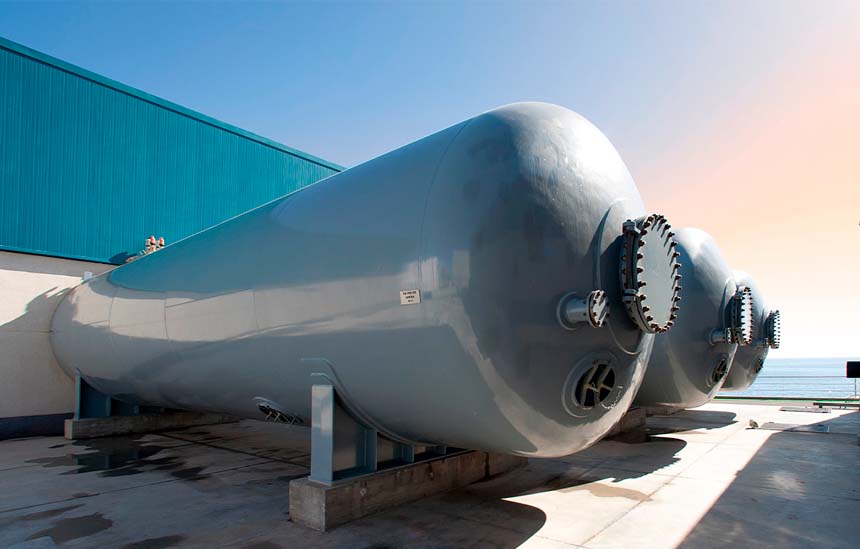- The MINERALS project sets out to develop technologies for the selective extraction of high-value elements contained in the brine that arises from the desalination process, aligning the process with the principles of the circular economy.
As part of its commitment to sustainability and innovation, ACCIONA has launched the MINERALS project titled “Selective extraction of high-value elements from seawater brine” in partnership with the LEITAT Technology Centre.
The European Commission has classified certain minerals such as magnesium, calcium, potassium, lithium, rubidium or boron as critical raw materials. This is due to limited terrestrial reserves and the growing demand associated with population growth and industrialisation. As a result, obtaining these minerals from seawater becomes a feasible option and a sustainable alternative to the problem of shortages of certain elements.
The MINERALS project will address the development and validation, at pilot scale, of advanced technologies for the selective extraction of high-value elements from the brine created in the reverse osmosis seawater desalination process. The technologies include liquid membranes based on the incorporation of ionic liquids and extractants into a polymer matrix, nanofibre adsorbents based on the incorporation of selective nanoparticles, and precipitation processes.
The main expected impact of the project is the extraction of elements with an efficiency of over 90% in the case of monovalent ions (lithium, rubidium, boron); over 65% for calcium; over 80% for magnesium and over 70% for potassium, always in relation to the concentration of seawater brine. At the scale of a medium-sized reverse osmosis desalination plant with an output of 200,000 m3/d, the extraction of these target elements could mean significant additional income, as well as bringing the desalination process closer to the principles of the circular economy.
ACCIONA will undertake the design, construction and commissioning of an innovative pilot plant that will integrate the processes developed for the selective extraction of target elements from brine, both minority ones such as lithium, rubidium and boron and high-value majority elements (e.g. calcium and magnesium). The aim is to demonstrate a leading competitive position in the emerging field of recovery of critical raw materials from seawater. This pilot plant will be located on the site of a seawater desalination plant.
The MINERALS project (budget around 600,000 euros) is coordinated by ACCIONA in partnership with the LEITAT Technology Centre.
The publication is part of the MINERALS project (Code: CPP2022-009663), funded by MCIN/AEI/10.13039/501100011033 and European Union-NextGenerationEU/PRTR.

